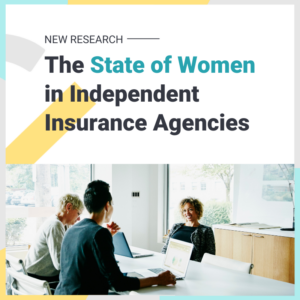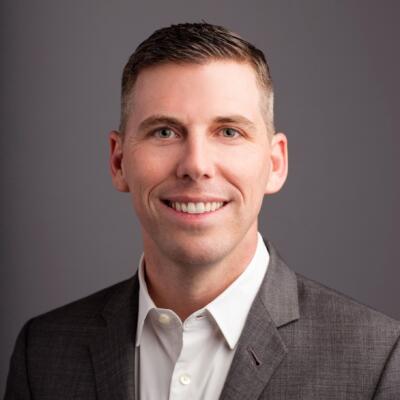When I first started getting involved with Liberty Mutual and Safeco’s employee resource group for women and allies, I wasn’t familiar with the term “ally” at all.
A lot of my peers and the women on my team were getting involved with the group and attending different events and conferences. I figured that I should check out this thing that was important to so many members of the team I work with every day.
I attended a few webinars and loved the conversations. It was interesting to hear firsthand accounts from women talking about their career growth as well as the challenges they face. It was sometimes hard to hear about the challenges, but the stories showed me how important it is for men to be allies to women.
As I continued to participate in more events and engage in more conversations about allyship, I saw how much there was to learn and how allyship can benefit everyone in the workplace.
Since I first began my allyship journey, I’ve learned many lessons about why it’s important and what makes a good ally. Here are a few of them:
Inclusion is everyone’s responsibility
Every person in your office has unique experiences and challenges.
Taking the time to make sure everyone feels seen, heard and included is a wildly important part of creating a healthy work environment.
Everyone plays a role in building an inclusive workplace culture. Practicing allyship ultimately makes you a better leader and co-worker and makes your entire team stronger.
In the new Agent for the Future research report, The State of Women in Independent Insurance Agencies, 37% agency principals said they were often the only woman in the room. One in three women said they sometimes feel uncomfortable about comments that are made about women.
It’s not just up to women to address these issues. It’s crucial that men practice allyship to help bring more women into leadership roles and make workplaces inclusive for everyone.
Allyship starts with listening
I’d define allyship as proactively looking for ways to learn about other people’s perspectives, meet people where they’re at and see how you can help.
The first step of allyship is taking the time to really listen. It’s about pausing, checking in and asking questions. You can’t assume that people view or experience things the same way you do. Depending on your background and life experiences, it may be easier to connect and relate to some members of your team than others. Where allyship comes in is recognizing where those gaps may be and making an effort to try on other perspectives to close that gap with everyone around you.
True allyship requires action
Of course, there’s much more to allyship than just listening to other people’s experiences. Truly becoming an ally requires action. It requires commitment, and it requires mindfulness. You can’t just call yourself an ally if you’re not doing anything to be an ally.
My boss Myrna Estrada shared a story of a time she was the only woman in the room and she was being bullied by a male colleague. None of the other men in the room intervened. Myrna is as tough as they come, but how much easier it would have been for her if one of the other people present had spoken up? It’s hard to be on the receiving end of a situation like that, and it’s even harder to have to defend yourself when everyone else is silent. Part of being an ally is finding those opportunities to step in and say something.
When you’re busy and focused on your own work, it can be easy for those types of situations to fly right past you. But there are opportunities to practice allyship every day if you look for them.
If you witness a difficult situation or someone shares a challenge you can help with, offer to help. Don’t take over or make the situation about you, but acknowledge the challenge and look for ways to help. That may look like stepping in if you witness someone being treated unfairly. It may look like checking in to balance out someone’s workload if they are going through a big job or life transition. It may look like making sure everyone has a seat at the table and no one gets overlooked. It may even look like making space for uncomfortable conversations about how you impact people and taking a step back so you can elevate other people.
Diversity and inclusion are good for business
While women make up the majority of employees in insurance agencies, men still hold the majority of top leadership positions.
This means that men are often the ones making the decisions about who to hire and promote. It’s important for male leaders to act as allies to mentor, sponsor and promote more women and people of color into leadership positions.
Why? Studies show that companies with diversity on their executive teams are more innovative and outperform less diverse companies.
Allyship can help you find your next agency leader
Empowering everyone on the team can also help insurance agency owners solve some of the issues they face with talent and perpetuation.
For example, a lot of agency owners are heading toward retirement, and many of them are wondering what to do with their agency. Sure, they could sell to an outside party, but many agency owners have spent decades building their agency. They’ve put their hearts and souls into the agency, and they would rather hand it off to somebody who can keep the culture intact and keep the business going.
The owners I’ve seen that are doing a good job preparing for perpetuation focus on development. Oftentimes, the talent is there. It’s right in front of them. Liberty Mutual and Safeco’s recent survey of women in independent insurance agencies found that more than half of women between the ages of 23-49 said they were interested in becoming a partner in their agency. How awesome is that?
If agency owners can formalize development opportunities and offer ways to earn partnership, it will not only give them more options for perpetuation, it will also increase employee satisfaction and retention. If employees have a stake in the business and shares in the agency, they’ll be more motivated to continue developing so they can take on bigger and bigger roles.
If people see a long-term career path, they’re going to stick around. On the other hand, if they don’t see a long-term future for themselves in the agency, they’re going to leave, and agency owners will be back in the difficult situation of trying to recruit new talent. Practicing allyship can help agency leaders create environments where all employees can unlock their full potential and see a long-term career path that allows them and the agency to thrive.





